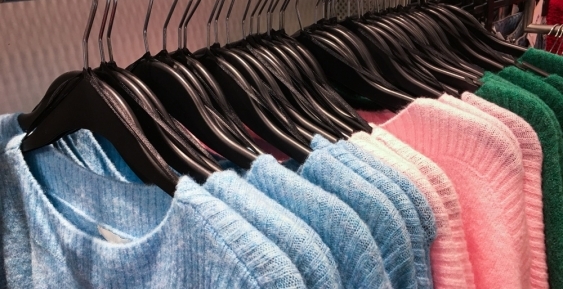
UNSW Science research on marine pollution, ocean weather and cell culture has contributed to UNSW being awarded 43% of the overall funding in the latest round of Australian Research Council Linkage Projects.
In all, UNSW secured nearly $4 million of the total $9.2 million announced by Federal Education Minister Simon Birmingham - the highest in the Group of Eight (GO8) universities. Three of the nine UNSW projects funded are from Science.
A project led by Dr Mark Browne and the Dean of Science Professor Emma Johnston, from the School of Biological, Earth & Environmental Sciences, was awarded $786,000 - among the largest ARC Linkage Project grants announced.
This project aims to provide scientifically verified methods to avoid, intercept and redesign products that cause the most abundant type of marine plastic pollution – clothing fibres - which has increased by over 450% in 60 years. It will determine how natural and plastic fibres, clothing brands and washing machine filters alter fibre emissions and ecological impacts. This will enable protocols to improve products and the environment, and reduce health risks that will benefit the public, government regulation and companies in designing "eco-friendly" products.
Project partners include Parley for the Oceans, Melbourne Water Corporation, South Australian Water Corporation and the Environmental Protection Agency.
A project led by Associate Professor Moninya Roughan, from the School of Mathematics & Statistics, was awarded $440,000 to develop a state-of-the-art ocean weather information system for marine industries. The project will design an end-to-end solution that integrates ocean observations, operational forecasting and data delivery, providing a quicker pathway from research to economic benefit.
Project partners include Oceanographic Field Services Pty Ltd and Metocean Solutions Ltd.
A team led by Scientia Professor Justin Gooding,from the school of VChemisytry, was awarded : from the School of Chemistry, was awarded $416,287 to develop a simple method for creating complex, multiple-cell-type three-dimensional (3D) cell cultures for in-vitro cell-based assays. Using 3D printing of multiple cell types, biological scientists will have more realistic in-vitro cell assays to those found in-vivo. Applications of the research are in cell biology, studying diseases and developing new drugs.
Partners include Inventia life Science Pty. Ltd.
To date, UNSW’s combined success rate for the 2017 Linkage Projects round is 32% for 11 Linkage Projects, totalling $4.7 million and placing the University first in the Go8 and the nation. These linkage grants, designed to foster collaboration between universities and industry, involved in-kind and financial support for UNSW research from almost 30 external organisations.
Professor Nicholas Fisk, Deputy Vice Chancellor (Research) at UNSW, congratulated the University’s researchers on securing the most grants in this round.
“This funding will really help overcome some of society’s biggest challenges to achieve real-world outcomes for Australia," he said.
"These projects demonstrate the strength of our researchers, the societal and end-user relevance of their research, and the burgeoning discovery culture and environment here at UNSW. The key to the continuous application process is to be in it to win it, and this approach is now paying off for UNSW.
"Although there has been a lag with the introduction of the continuous process, we are now encouraged to see some impressive runs on the board.”
See the full list of recipients here.
